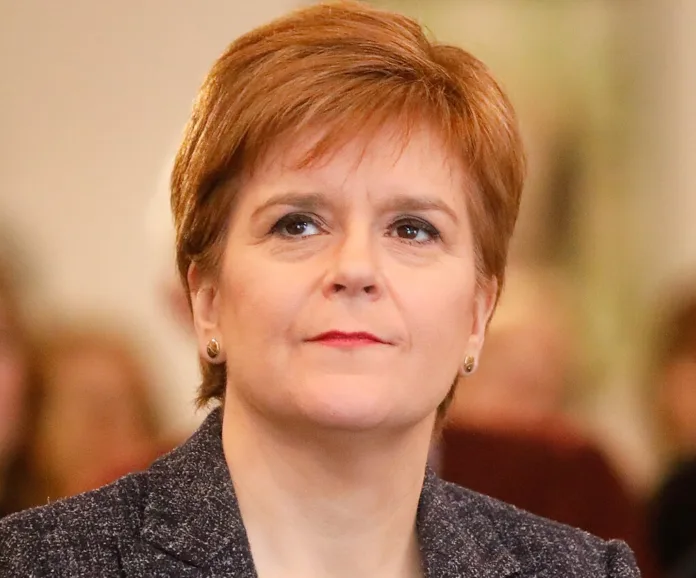Sturgeon envisions a transformative realignment in UK governance, including Scottish independence and potential Irish reunification, alongside enhanced devolution for Wales
In a recent interview marking the 10-year anniversary of the 2014 Scottish independence referendum, former First Minister Nicola Sturgeon has forecasted a significant realignment of governance across the UK. Sturgeon envisions Scotland achieving independence as part of a broader “shake-up” that could also include Irish reunification and further devolution for Wales.
Sturgeon’s prediction reflects her enduring belief in the inevitability of Scottish independence. She emphasized that while she cannot predict the exact order of these events, she is committed to advocating for Scotland’s independence for as long as she can. She described the independence campaign leading up to the 2014 referendum as a period of intense political engagement and optimism, despite the ultimate loss by a margin of 55.3% to 44.7%.
Embed from Getty ImagesSturgeon’s vision aligns with ongoing discussions about Irish reunification. Sinn Féin’s recent electoral success in Northern Ireland, particularly with Michelle O’Neill becoming the first nationalist First Minister, has reignited debates about the possibility of a border poll. The 1998 Good Friday Agreement provides a framework for such a poll, contingent upon majority support for reunification among Northern Ireland’s electorate.
The former SNP leader also speculated that further devolution for Wales could be a part of this new governance structure, which she views as a positive realignment of how the nations of the British Isles interact and govern themselves. This perspective underscores her belief in a more decentralized and cooperative approach to governance within the UK.
Reflecting on her tenure, Sturgeon admitted regrets over aspects of the 2014 referendum campaign. She cited missed opportunities and criticized the early and aggressive push for a second referendum post-Brexit, which she believes may have alienated potential supporters. Despite this, Sturgeon remains a vocal advocate for Scottish independence, arguing that the political climate and public sentiment will continue to evolve in favor of a Yes vote.
Ruth Davidson, former Scottish Conservative leader, argued that Sturgeon’s aggressive strategy may have hindered her chances of securing a second referendum. Davidson suggested that a more cautious approach might have allowed for greater collaboration with the UK government, potentially altering the trajectory of Scotland’s independence movement.
Current First Minister Humza Yousaf is expected to address independence campaigners in Edinburgh, highlighting the referendum’s lasting positive legacy for Scotland. He will likely emphasize the progress made and the continued relevance of the independence debate in shaping Scotland’s future.
Analysis:
Political: Sturgeon’s predictions reflect ongoing shifts in UK politics, with potential implications for governance across the British Isles. Her vision of Scottish independence and Irish reunification suggests a profound transformation of the UK’s political landscape, influenced by recent political developments and public sentiment.
Social: The discussion around Scottish independence and Irish reunification touches on broader social issues, including national identity and self-determination. Sturgeon’s emphasis on further devolution for Wales highlights a growing demand for greater regional autonomy and local governance within the UK.
Racial: While the focus is on national governance and independence, the implications for racial and ethnic communities are indirect. However, shifts in governance could impact diverse communities by altering political representation and policy priorities.
Gender: Sturgeon’s tenure and predictions have significant gender implications. As a prominent female leader advocating for Scottish independence, she represents a powerful example of women in political leadership. The evolving political landscape might affect gender dynamics in governance and political participation.
Economic: The potential changes in governance, including Scottish independence, Irish reunification, and further devolution, could have significant economic implications. These shifts might affect economic policies, trade relationships, and financial stability across the UK and the broader British Isles.
